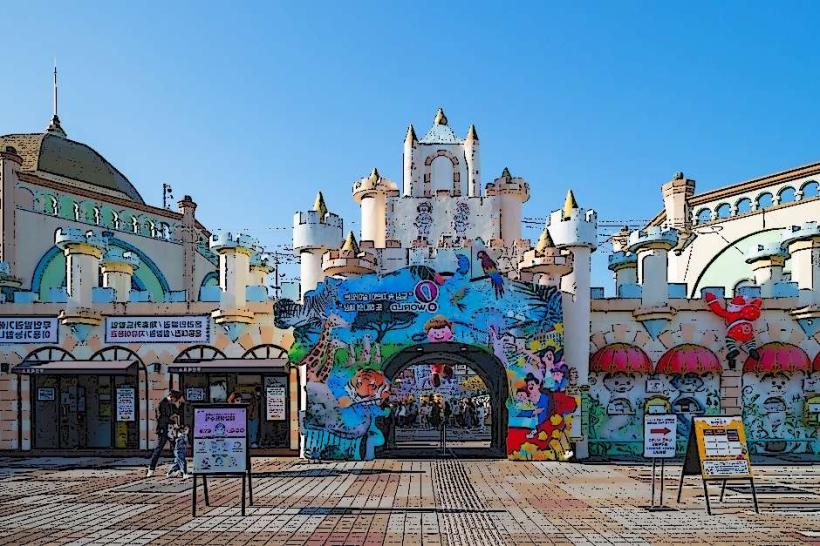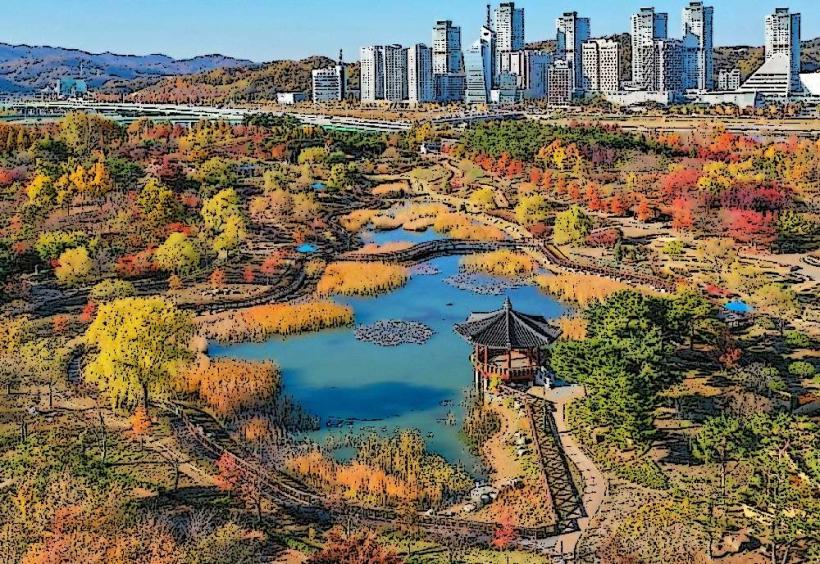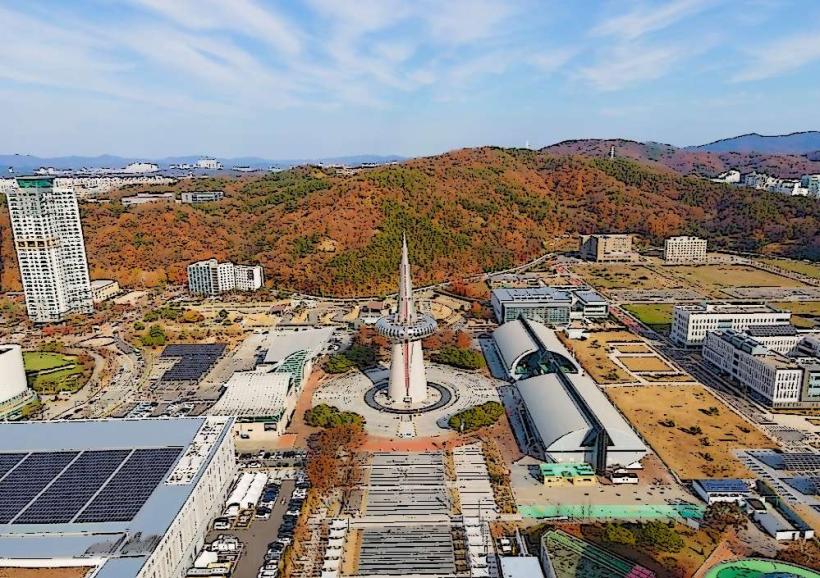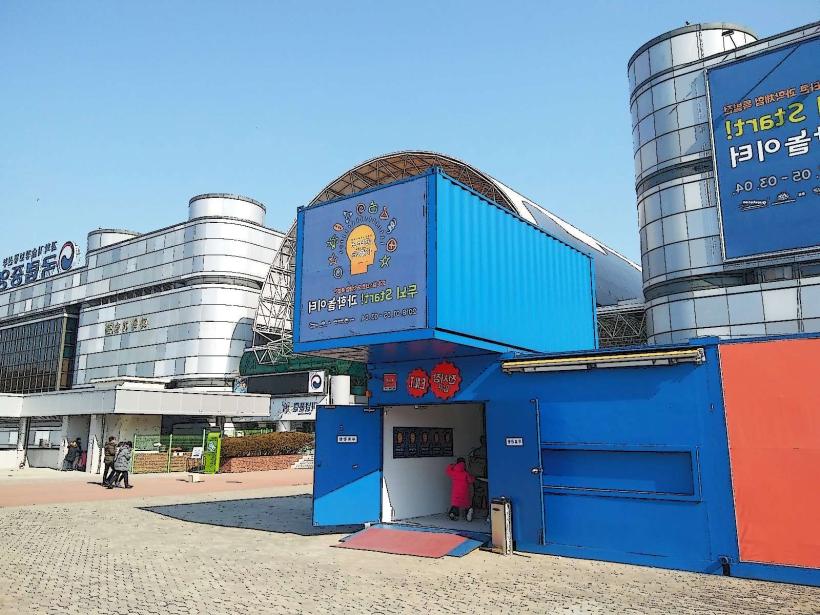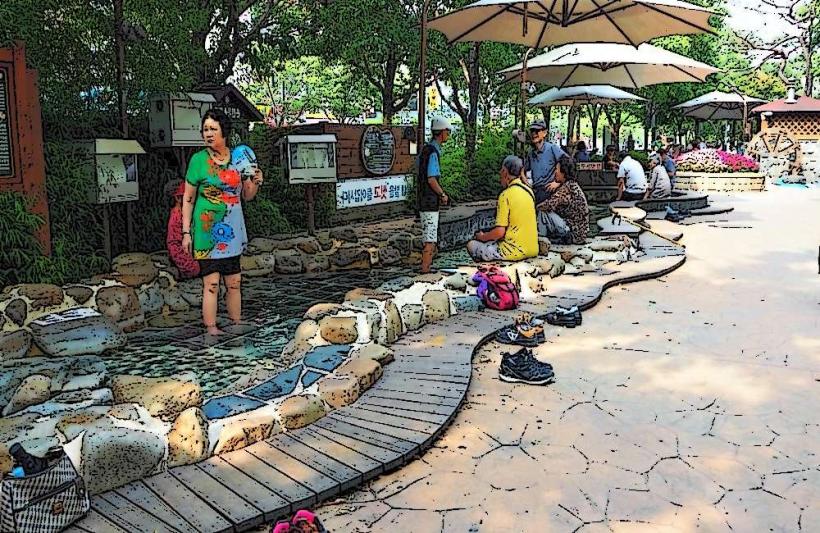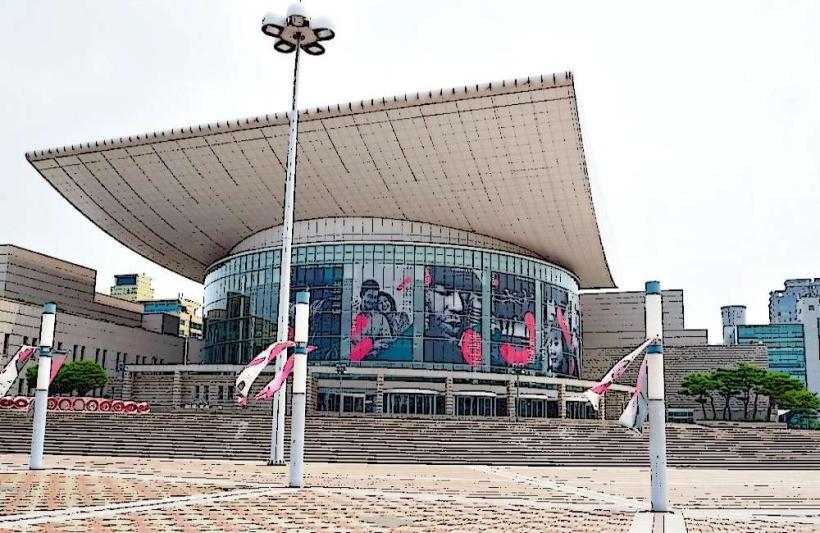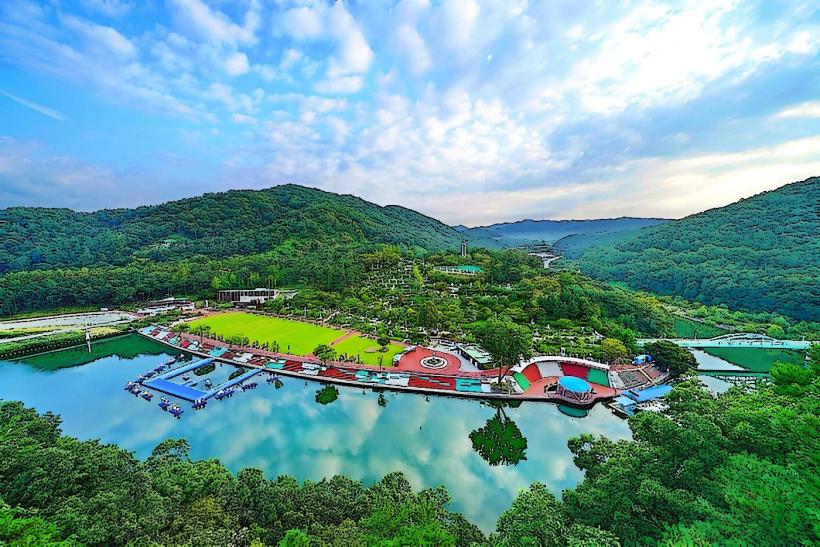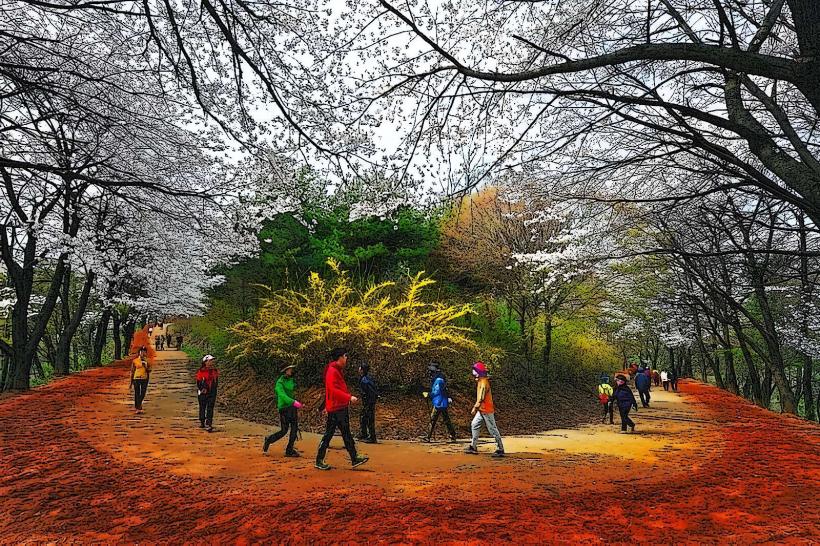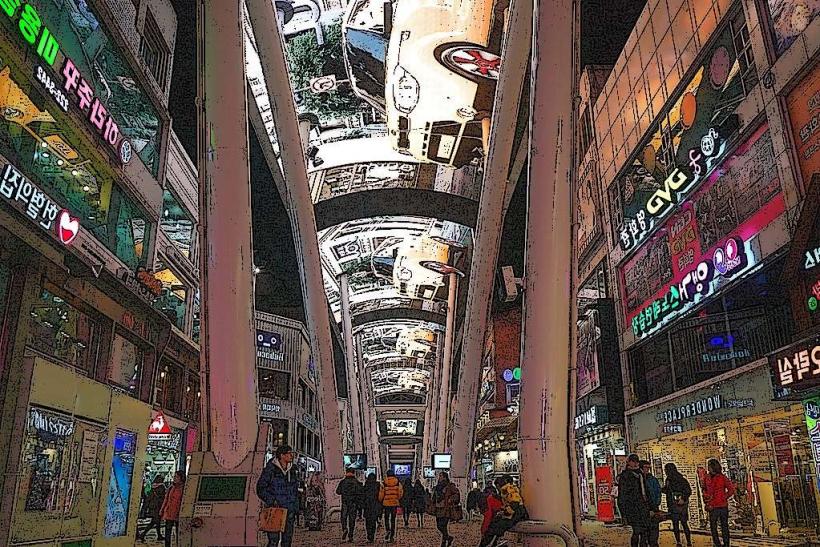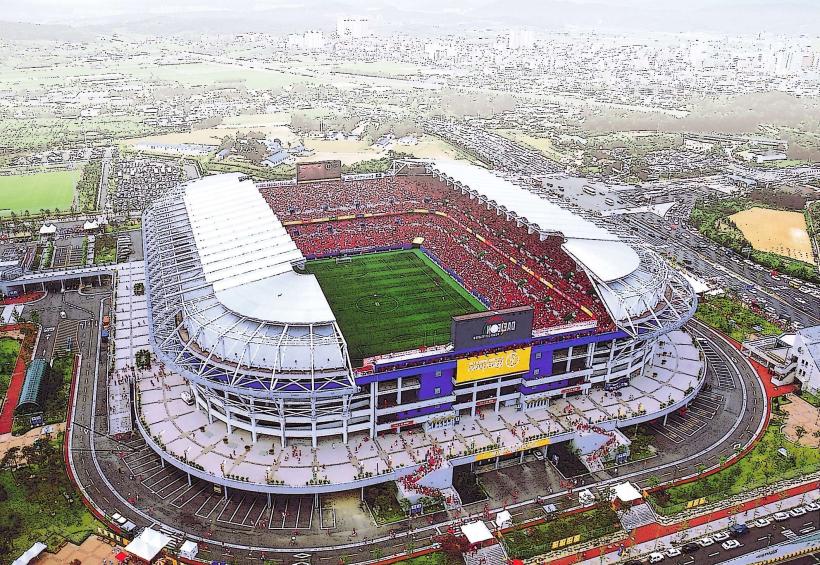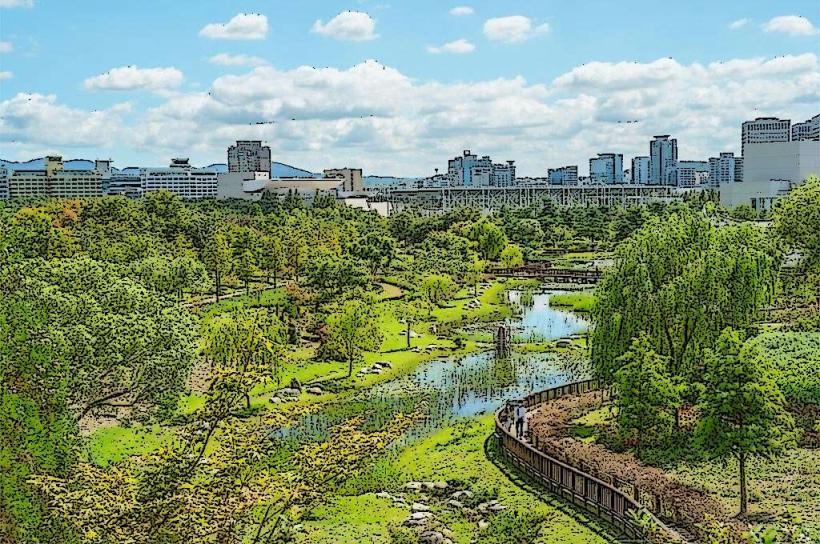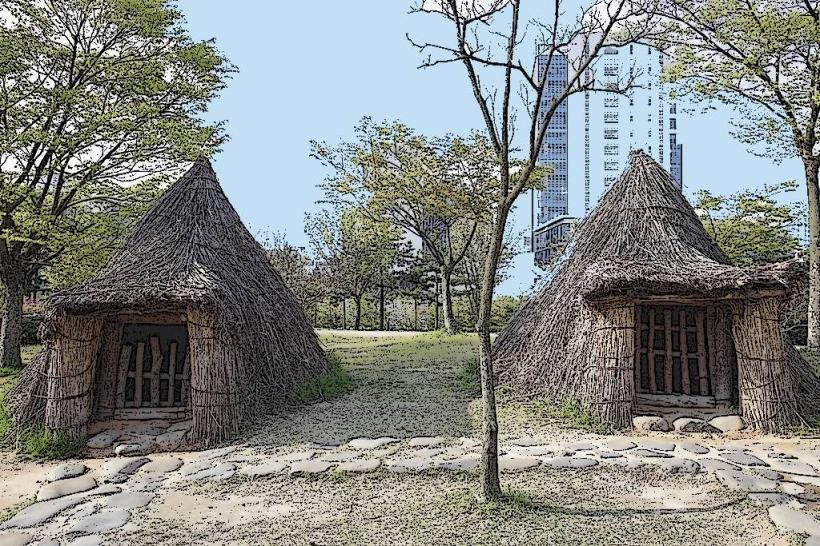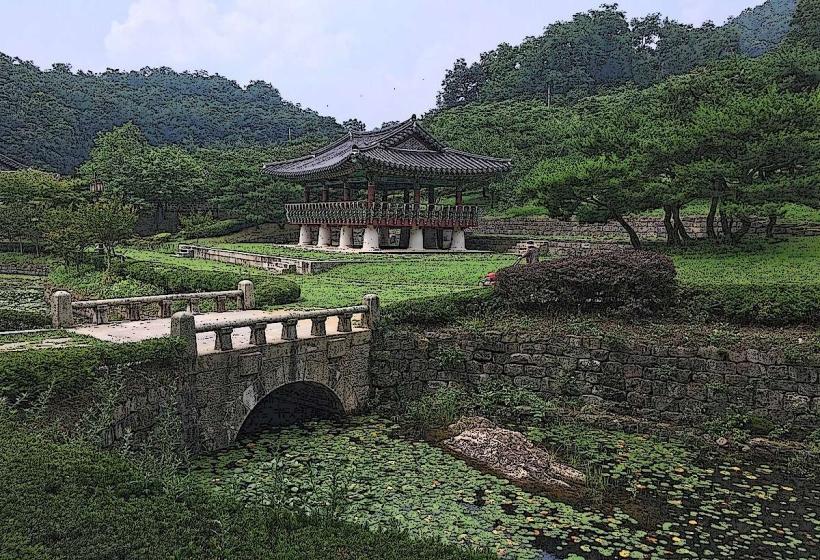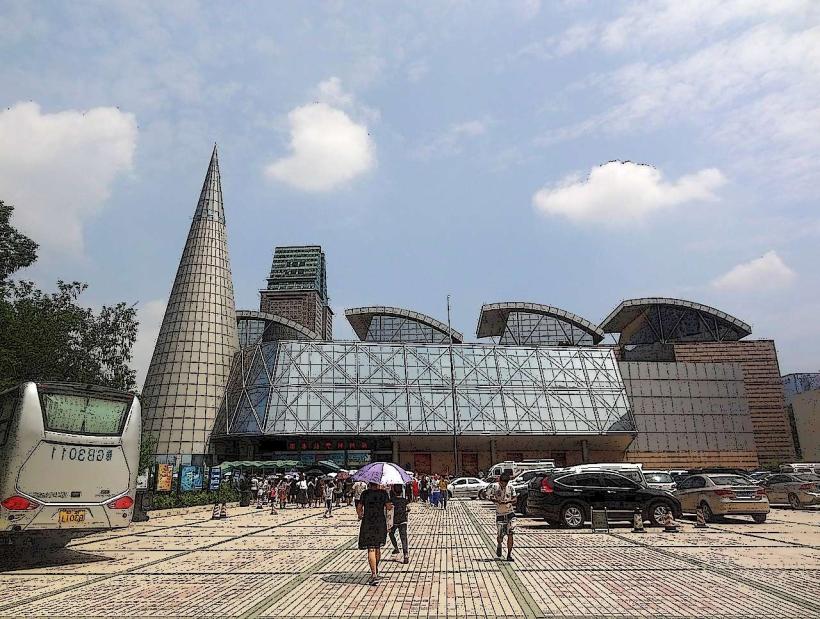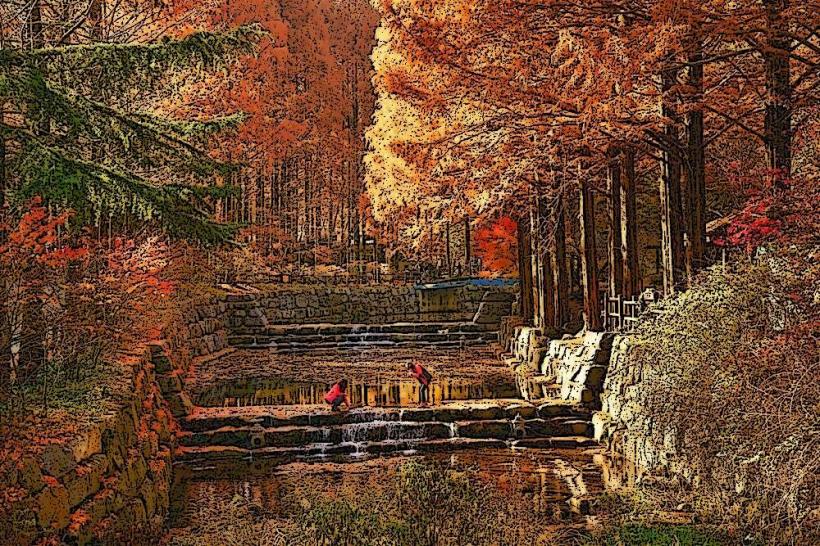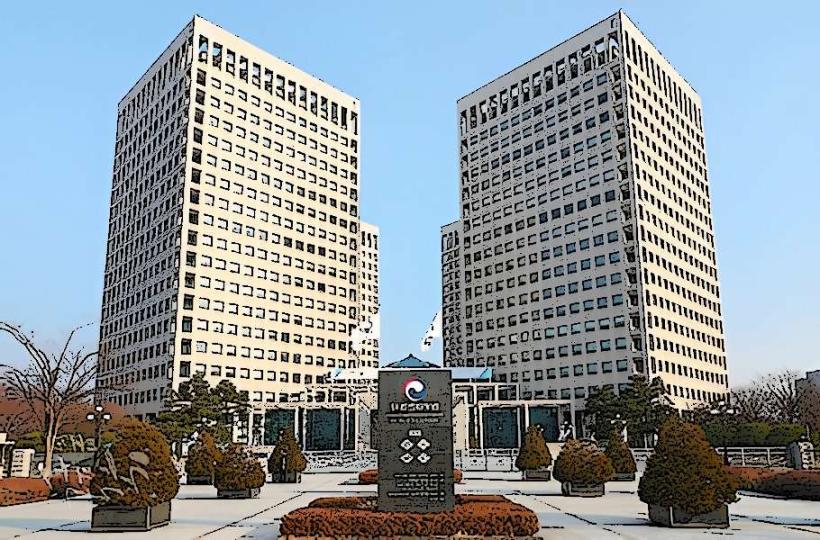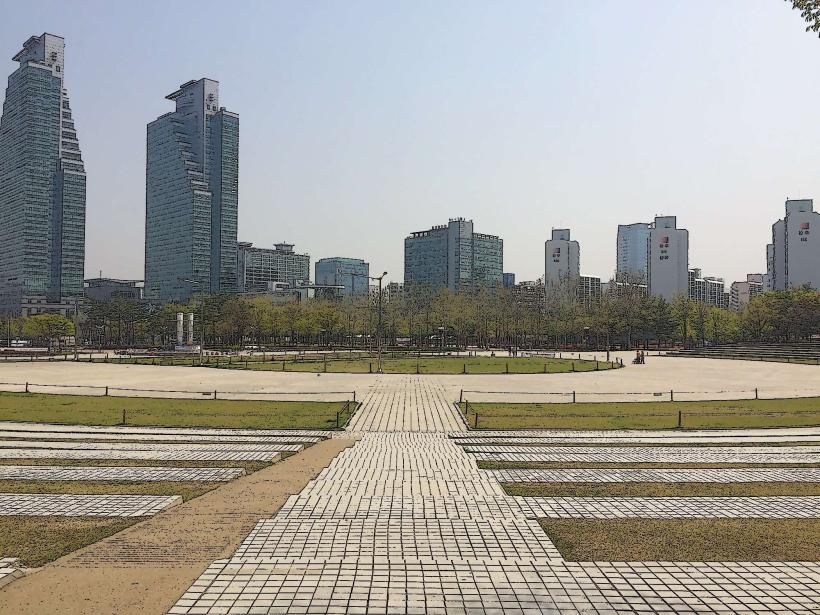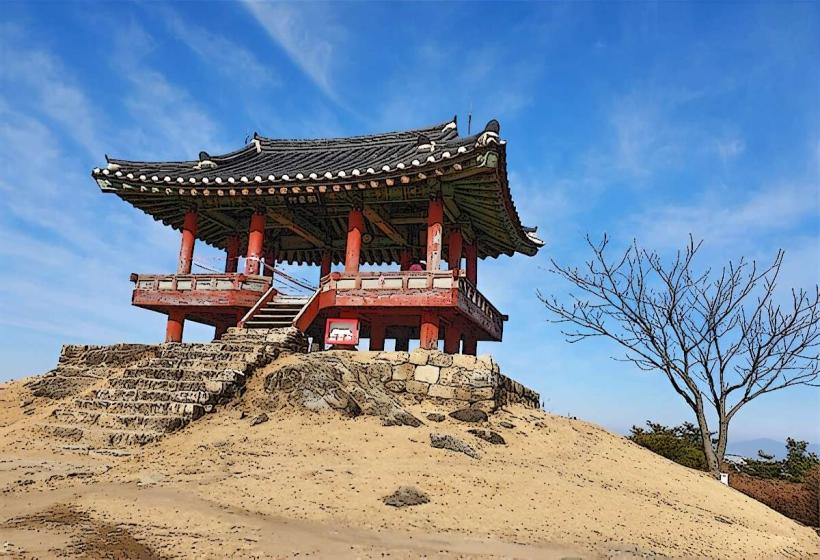Information
Landmark: Daejeon Science ComplexCity: Daejeon
Country: South Korea
Continent: Asia
Daejeon Science Complex, Daejeon, South Korea, Asia
The Daejeon Science Complex is a multi-building research and exhibition facility located in the Yuseong District of Daejeon, South Korea.
It serves as a hub for scientific exploration and public engagement with technological advancements.
Visual Characteristics
The complex features a series of modern, low-rise buildings constructed primarily from concrete and glass. Structures are characterized by clean lines and functional design. The primary color palette consists of neutral tones such as grey, white, and metallic finishes. Landscaping includes manicured lawns and paved walkways.
Location & Access Logistics
The Daejeon Science Complex is situated approximately 15 kilometers west of Daejeon city center. Access is via National Route 32 (Yuseong-daero). Public transport options include Daejeon City Bus lines 104, 105, and 106, which stop directly at the complex. Limited on-site parking is available for visitors, with additional parking facilities located nearby.
Historical & Ecological Origin
The Daejeon Science Complex was established in the late 1980s as part of Daejeon's development into a national science and technology hub. Its purpose was to consolidate research institutions and promote scientific literacy among the public. The site itself is situated on a relatively flat plain, with no significant geological or ecological features of note prior to development.
Key Highlights & Activities
Visitors can explore the permanent exhibition halls showcasing advancements in various scientific fields, including space exploration, robotics, and biotechnology. Interactive displays are available for all age groups. The complex also hosts temporary exhibitions and scientific lectures. Outdoor areas feature demonstration gardens and public art installations.
Infrastructure & Amenities
Restrooms are located within each exhibition building. Shaded seating areas are provided throughout the complex grounds. Cell phone signal (4G/5G) is generally strong. Food vendors and a cafeteria are available within the main exhibition hall.
Best Time to Visit
The best time of day for photography is generally mid-morning or late afternoon to avoid direct overhead sunlight. The complex is open year-round, with weekdays often less crowded than weekends. No specific tide requirements apply.
Facts & Legends
A notable feature is the large, spherical "Science Tower" which houses a planetarium. Local lore suggests that the tower's design was inspired by the shape of a proton, reflecting the complex's focus on fundamental science.
Nearby Landmarks
- Daejeon National Cemetery (1.2km Southeast)
- Yuseong Hot Springs (2.5km Southwest)
- KAIST (Korea Advanced Institute of Science and Technology) (3.0km West)
- Daejeon World Cup Stadium (4.5km East)

